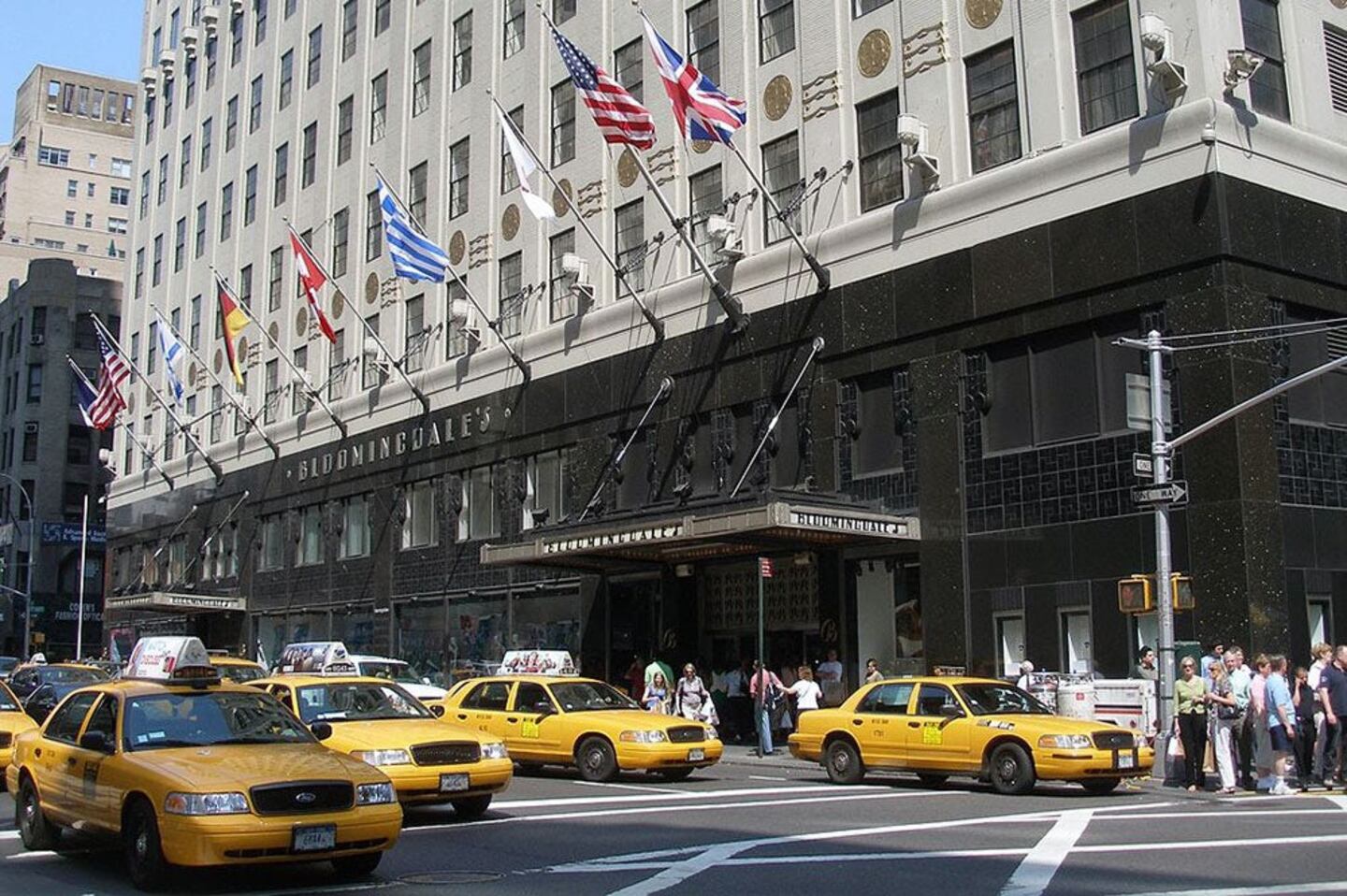
The Business of Fashion
Agenda-setting intelligence, analysis and advice for the global fashion community.

Agenda-setting intelligence, analysis and advice for the global fashion community.

NEW YORK, United States — Returning a party dress the day after a big soiree is getting harder to do.
Instead of just tagging merchandise before it’s purchased to prevent theft, the Bloomingdale’s department-store chain is keeping some garments tagged after they’re sold, too. The three- inch black plastic devices are in visible places, like the front bottom hemline, so they’re hard to hide when the garment is worn. Once shoppers remove the tags, which can’t be reattached, they can’t return the item.
Bloomingdale's, owned by Macy's Inc., is using the tactic to combat a practice known as "wardrobing" -- buying clothes and using them once -- a form of return fraud, which the National Retail Federation estimates cost the industry $8.8 billion last year. Curtailing such practices is complicated because while stores want to protect themselves, they risk demonstrating a mistrust of customers who are paying thousands of dollars for garments. It's a gamble some chains, including Nordstrom Inc., aren't taking.
“It is a delicate balance of loss prevention and good customer service, and the relationship has to be handled with appropriate finesse,” Rich Mellor, vice president of loss prevention at the NRF, said in a telephone interview.
ADVERTISEMENT
Wardrobing -- defined by the NRF as returns of used, non- defective merchandise -- is a problem for the industry because stores find it difficult to resell such items if they’re soiled or have gone out of style. They can’t even be shipped to be sold at off-price retailers, Mellor said.
Growing Trend
About 65 percent of retailers in a November survey by the NRF reported experiencing wardrobing last year, up from 61 percent a year earlier. The merchants suspected 3.3 percent of their total returns last year were fraudulent, according to the Washington-based trade group’s survey. The poll also was the source of the estimated total loss from return fraud, which includes using counterfeit receipts and returning stolen goods.
Minimizing losses from theft and fraud may help retailers as consumers slow purchases of non-essential merchandise. Bloomingdale’s Cincinnati-based parent company last month cut its forecast for profit in the current fiscal year after second- quarter sales unexpectedly fell. Preventing wardrobing also would help during the approaching holiday season, the largest spending period of the year and a time of numerous parties and formal events.
Tag Alerts
At Bloomingdale’s New York flagship store, some dresses on the racks already have the tags on them. Online shoppers are alerted on the item’s details tab that the product will arrive tagged. Tag alerts appear on some gowns offered on the site after searching “prom dress.”
Last week at the Bloomingdale’s store in Manhattan, a female customer on the third floor was seen objecting to the change in the return policy with a salesman, saying she didn’t understand the new practice. The salesman explained how to remove the tag at home and told the customer she could still return the item, provided that it was still attached.
Complaints also have surfaced on social media. A Twitter user going by the name MatiLDA on April 28 posted that the Bloomingdale’s tag tore some items when she removed them at home, leaving her with damaged clothing she couldn’t return.
ADVERTISEMENT
Jim Sluzewski, a spokesman for Macy’s, and Marissa Vitagliano, a spokeswoman for Bloomingdale’s, declined to say when the chain began using the tags and wouldn’t provide any other details, citing a company policy of not discussing return fraud.
Nordstrom doesn’t use such tags, Colin Johnson, a spokesman for the Seattle-based company, said in an e-mail.
Customer Respect
“Our experience is that if you treat the customer with respect, they respect you back,” Johnson said.
If a garment comes back obviously used -- sweat-stained, for example -- the retailers can refuse to refund it. Stores tend to be lenient in one-off situations while being firmer with repeat offenders, Mellor said.
Department stores have a higher return rate than other retailers and have been more susceptible to fraud, Mellor said. Not only do they typically have more permissive return policies, they also carry high-fashion eveningwear that is more prone to one-time use for special occasions.
Still, they’re not alone in trying to fight return fraud. L Brands Inc., owner of Victoria’s Secret, has used a return database to track return patterns to identify customers to refuse. Chains also use receipts that are harder to replicate because they are printed with proprietary, identifiable inks. That helps them prevent returns based off of counterfeited receipts.
For Bloomingdale’s, the new tags were a necessary move, said Marie Driscoll, founder of Driscoll Advisors, a New York- based retail consulting firm. A growing number of customers, including younger shoppers, were buying fancy dresses, wearing them once and returning them.
ADVERTISEMENT
“They are going to alienate customers that abuse the policy,” Driscoll said in a phone interview, “and I don’t think that is so bad.”
By Cotten Timberlake, Renee Dudley, Minsi Chung; Editors: Robin Ajello, Kevin Orland
From analysis of the global fashion and beauty industries to career and personal advice, BoF’s founder and CEO, Imran Amed, will be answering your questions on Sunday, February 18, 2024 during London Fashion Week.
The State of Fashion 2024 breaks down the 10 themes that will define the industry in the year ahead.
Imran Amed reviews the most important fashion stories of the year and shares his predictions on what this means for the industry in 2024.
After three days of inspiring talks, guests closed out BoF’s gathering for big thinkers with a black tie gala followed by an intimate performance from Rita Ora — guest starring Billy Porter.